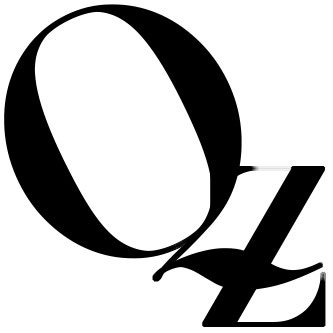Subtotal ₹0.00
Trump Confirms TikTok Sale Deal: What It Means and Why It Matters
In a surprising turn of events, former U.S. President Donald Trump revealed that a deal involving the sale of TikTok in the U.S. would likely be finalized before a fast-approaching Saturday deadline. This big news came amid growing concerns about national security, data privacy, and the rising influence of Chinese-owned apps like TikTok.
But what does this really mean for TikTok users, the companies involved, and the future of tech regulation in the United States? Let’s break it down together.
Why Is TikTok in the Spotlight?
TikTok, owned by the Chinese company ByteDance, quickly became one of the world’s most popular social media apps. With its fun dance videos, trending challenges, and bite-sized content, it captured the attention of teenagers and adults alike.
However, the U.S. government raised concerns that TikTok could be sharing user data with the Chinese government — something TikTok’s parent company repeatedly denied.
Trump, during his presidency, claimed that TikTok posed a threat to U.S. national security. He insisted that unless the company sold its U.S. operations to an American business, it would be banned from operating in the United States.
What Did Trump Say About the TikTok Deal?
During a press event at the White House, Trump shared that a deal was “in the works” and could be sealed just in time — by Saturday. He mentioned multiple U.S. companies were showing interest in TikTok, and that the final decision was close.
While he didn’t confirm the exact details of the agreement, he hinted that the outcome would be positive for everyone involved – especially U.S. national security.
Trump also stated:
“We’ll either close up TikTok in this country for security reasons or it’ll be sold.”
In other words, the clock was ticking, and ByteDance had to act quickly.
How Did This All Start?
This isn’t just about social media videos and viral dances. There’s a much bigger story here, involving global politics and data privacy.
Earlier in 2020, the Trump administration issued an executive order that gave ByteDance an ultimatum: either sell its U.S. operations or face a shutdown of TikTok in the country. The concern was that TikTok could collect American users’ information and potentially put their privacy at risk.
It’s important to understand that this wasn’t the first time the U.S. took issue with a Chinese tech company. Huawei, another tech giant, had already faced a crackdown for similar reasons.
Who Were the Possible Buyers?
Several big-name U.S. companies showed interest in TikTok’s U.S. operations. Among them, Microsoft was a front-runner. There were also reports that Oracle, a tech and cloud computing company, had submitted a proposal — not for a direct purchase, but for a “trusted tech partnership.”
That means instead of owning TikTok, Oracle would help manage its data and safeguard American users’ information.
Trump hinted that he favored Oracle’s proposal and described the company as a “great” and “highly respected” business.
Some of the key companies involved in the TikTok race included:
- Microsoft: Proposed to buy full TikTok operations in the U.S., Canada, Australia, and New Zealand.
- Oracle: Suggested a partnership that includes secure data hosting and operations oversight in the U.S.
- Walmart: Teamed up with Microsoft at one point, eyeing TikTok’s impressive e-commerce potential.
What Does This Mean for TikTok Users?
If you’re one of the 100 million people in the U.S. using TikTok, you might be wondering: Will the app disappear? Will my account be deleted? The short answer: Probably not.
Trump’s statement suggested that a sale or partnership deal could allow TikTok to continue operating in the U.S. — without the big security concerns. So, users wouldn’t need to worry about the app being pulled from their phones overnight.
That said, any changes in ownership might lead to updates in policies, data storage, and maybe even how the app functions in the future.
Big Picture: Tech, Trust, and Tensions
This isn’t just about TikTok — it’s about how countries handle digital privacy and international tech companies. In recent years, there’s been growing concern over how apps collect and store data.
Here’s why the TikTok story matters so much:
- Data privacy: More apps are being asked to explain how they use and store user data.
- Global trust issues: The U.S.-China relationship has been rocky, and this adds another layer to it.
- Tech regulation: Governments are starting to crack down on foreign-owned digital platforms that operate within their borders.
Imagine if your favorite app suddenly had to shut down due to international politics. That’s the kind of world we’re stepping into, and it’s a reminder of how interconnected our lives and technology have become.
So, What’s Next?
At this point, all eyes are on the deadline. If a deal is reached, TikTok can breathe a sigh of relief — at least for now. The company will likely undergo changes to meet U.S. national security standards, and users may notice slight shifts in how the app functions.
If no agreement is made, TikTok might face a ban in the U.S. — which could shake the tech world and open the door for other platforms to step in. Instagram Reels and YouTube Shorts, for example, are already gaining traction as TikTok alternatives.
What Can We Learn From This?
Situations like this show how business, politics, and technology are growing more intertwined. While these high-level decisions happen behind closed doors, they can have real consequences for the average person.
Still skeptical about how serious data privacy is? Try this:
Think of your digital data like your personal diary. Would you feel comfortable if a stranger — or a foreign government — had access to it? Likely not. That’s essentially what this argument is about — protecting user data from falling into the wrong hands.
Final Thoughts
TikTok’s future in the United States was hanging in the balance, but Trump’s latest remarks offered a glimmer of hope for the app’s millions of fans. Whether it will stay as it is or evolve under new ownership remains to be seen, but one thing is clear — tech companies can no longer operate in a regulatory gray area.
The TikTok saga is a reminder that even our most playful apps can stir up serious debates about data, security, and international trust.
So, whether you spend your time scrolling through TikTok challenges or creating content of your own, this story is one worth paying attention to.
And who knows? The next time you post a dance video, you might just be participating in the most geopolitically significant trend on your screen.







